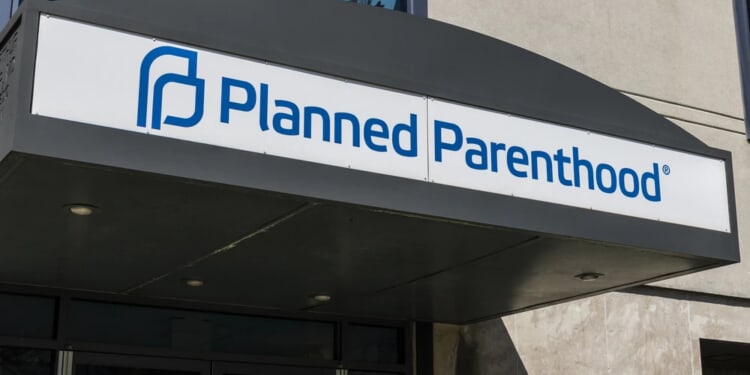CNA Staff, Nov 4, 2025 /
16:32 pm
Claim: Primary care operations are closing because President Donald Trump defunded Planned Parenthood and other abortion providers.
CNA finds: Abortion providers prioritize abortion over primary care, causing closures. Community health clinics across the country continue to offer care without providing abortions.
Breakdown: When President Donald Trump signed the One Big Beautiful Bill Act, taxpayer dollars were no longer allowed to be used to subsidize abortion providers for one year. Because of this, abortion providers don’t currently qualify for federal Medicare and Medicaid reimbursements.
Rather than giving up abortion offerings, abortion providers like Planned Parenthood and Maine Family Planning are closing their doors to primary care patients.
Maine Family Planning provides abortions up to 14 weeks as well as birth control and “gender-affirming” health care. Across 18 clinics, Maine Family Planning provided about 600 patients with primary care in 2024. Meanwhile, the group provided more than 600 abortions in the same year, according to its own numbers.
Meanwhile, nearly a quarter of its funding comes from Medicaid. In total, it receives nearly $2 million in Medicaid reimbursements each year, according to the Maine Morning Star.
Maine Family Planning sued the U.S. Department of Health and Human Services earlier this year, but a federal district court in August rejected its request for taxpayer dollars. On Oct. 31, the Associated Press reported that Maine Family Planning would close its primary care operations.
The organization is not the only abortion provider to shut down primary care rather than opt out of offering abortion. Planned Parenthood locations in California, for instance, are closing primary care facilities while continuing to offer abortions.
“Why do these organizations close clinics — but not abortion programs?” asked the director of Maine Right to Life, Michael McClellan.
“It’s important to note that when organizations such as Maine Family Planning choose to close primary care offices, that decision rests with them,” McClellan said. “Federal funding changes simply ensure that taxpayer dollars are not used — directly or indirectly — to promote or perform abortions.”
McClellan noted that “many other providers across Maine continue to serve patients under these same guidelines.”
Kelsey Pritchard, Susan B. Anthony Pro-Life America spokeswoman, said that abortion providers don’t prioritize primary care services.
For both Maine Family Planning and Planned Parenthood, Pritchard said that “primary care services clearly aren’t the priority and it’s no surprise they are on the chopping block.”
“Policymakers shouldn’t negotiate with entities that play these cruel games — dropping patients’ real health care needs to double down on ending babies’ lives,” Pritchard said.
Maine Family Planning did not respond to a request for comment in time for publication.
What options exist for women?
(Story continues below)
Subscribe to our daily newsletter
Community health centers vastly outnumbered Planned Parenthood locations in the U.S., according to a report by Charlotte Lozier Institute.
There are “more than 8,800 community health centers that provide comprehensive care to vulnerable populations and offer women’s health services, in comparison to just 579 Planned Parenthood centers as of spring 2025,” the Charlotte Lozier Institute report read.
Maine has about 70 community health centers offering women’s health — many of which are located in rural areas. More broadly, in Maine there are 131 Federally Qualified Health Centers — clinics that qualify for reimbursement under Medicare and Medicaid.
“Maine residents continue to have access to a wide range of health services through community health centers, federally qualified health clinics, and hospital-based practices that provide comprehensive, life-affirming care for women and families,” McClellan said.
“These clinics offer prenatal and postnatal care, cancer screenings, immunizations, and preventive health services — without performing or referring for abortions,” he continued.
Many “better options” are available, Pritchard said.
“The pro-life movement is happy to help patients locate the care they need and deserve,” Pritchard said.
“The pro-life movement in Maine is deeply committed to supporting both women and their children — before, during, and after birth,” McClellan added. “Through a network of pregnancy resource centers, faith communities, and local service agencies, women can access free pregnancy testing, prenatal support, parenting classes, material assistance, housing help, and referrals for ongoing health care.”
The verdict: Some clinics are closing because they choose to continue providing abortion. Many other clinics continue to provide care for patients in Maine and across the U.S.


















